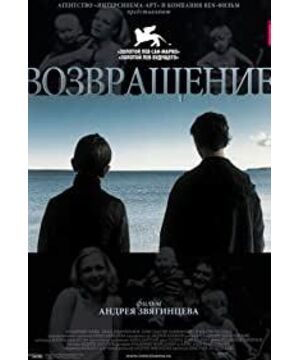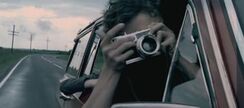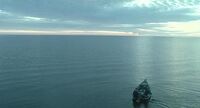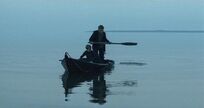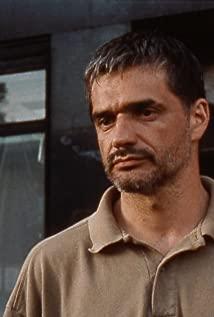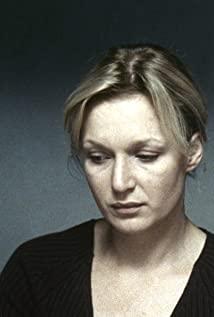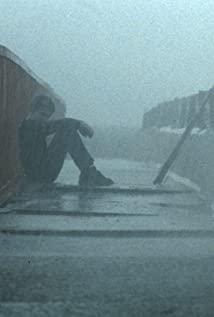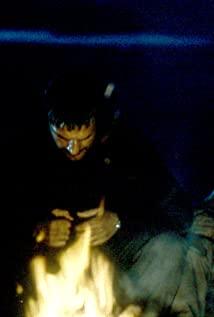Father’s return reminds me of "The Miracle of Berne", but the tone of "Return" is very cold when it comes up, which is in sharp contrast to the brightness of Berne, but for a father who never knew his life, the children's reaction All are similar. Expecting, afraid, feeling the barrier, then resisting, but I always thought that in the end my father would reprimand the youngest son who dissatisfied him the most. Unexpectedly, he fell off with a snap. Later, I think about it, the father who returned from the war had always used extremely hegemonic methods to educate his children. The elder son received this compulsive education on the surface, but on the one hand he couldn’t hold his own opinion. The younger brother (the younger one should be the younger brother) wandered between, but the father became extremely calm after he turned up, like a copy of his father, while the younger son kept repelling him with a kind of childish resistance. Father, the estrangement arises from the initial remarks and the father's peeping in the inverted mirror. Although the youngest son is very childish, he can often speak the truth in front of his brother.
I
have to admit that in the second half hour , if there is no surprise in the second half hour, "Return" can't be regarded as a wonderful work. The younger son’s rebellion against his father intensified, and the dramatic conflict lurked deep in everyone’s hearts. Just when I felt like an ordinary feature film, the father would infect his son with a "moving" story or action. The little son who was afraid of heights climbed to the top of the watchtower and played suicide. What made the audience want to commit suicide is that when the father climbed up and finally understood what to say to the child-he fell to his death! At that time, there was a camera. First, he was looking at the top of the tower. Father climbed into the camera and then fell down. At this time, the camera quickly moved to the edge of the tower. As the person behind the screen, I was taken aback by the sudden movement. I also consciously stretched my head over the camera, wanting to see what happened underneath... I sighed about the director’s skill. This is the second time I was so attracted by a simple lens. The first time was in Hitchcock. The nervous peeking lens in "Rear Window" of. But this time, the atmosphere of the previous swordsmanship was lost. I suddenly discovered that such a beautiful film also had dark areas. The youngest son climbed down and wept bitterly, not because of his dead father, most of it found himself. I was at a loss when I did the wrong thing.
end
The ending is quite puzzling, but one thing is certain. The author has carved a symbol in the heart of this invented city ruined child: "Dad". Oh, dad, what do they think of their dad? Maybe the father in their circle has been promoted to the front line to fight an unknown war. Then, what should father be like?
Does that blurred image have made the children unable to accept a living father who has never dealt with before? Finally, the father drifted away and sank to the bottom of the lake. The two children suddenly realized that the necessary symbols were gone forever, and they were chasing after them desperately, but what's the point of chasing them? The incomprehensible place is in the back. I haven't figured out the meaning of the pictures on display. The chronological order seems to be arranged upside down, but the two children turned up a photo of a long time in the car, and there is no father's in it. Image, at this time I realized that Comrade Director might want to say a lot, but the length is a little shorter and the collection is a bit anxious. Maybe Zhivagintsev wants to provide us with a larger space for imagination, huh, surreal?
Photography and rhythm
, does it look like Hoh Xil? The Hoh Xil picture is wider than this one, but a bit similar, magnificent and a little bit cold. When I was watching "Return", I often sighed for the beautiful pictures, and some low-angle shots made the scenery of water and sky pressed directly on me in front of the screen. The slow narrative rhythm makes the lake that does not flow very much seem to be more and more peaceful. Thinking of "The Quiet Sea of That Summer", it is also so quiet, but it allows a life to easily die under the caress of the tide. . Wonderful
performance
! In place! It's just that Garlin actually died in reality with the actions in the film, adding another layer of black to the black tone. The deceased is truly legendary.
View more about The Return reviews


